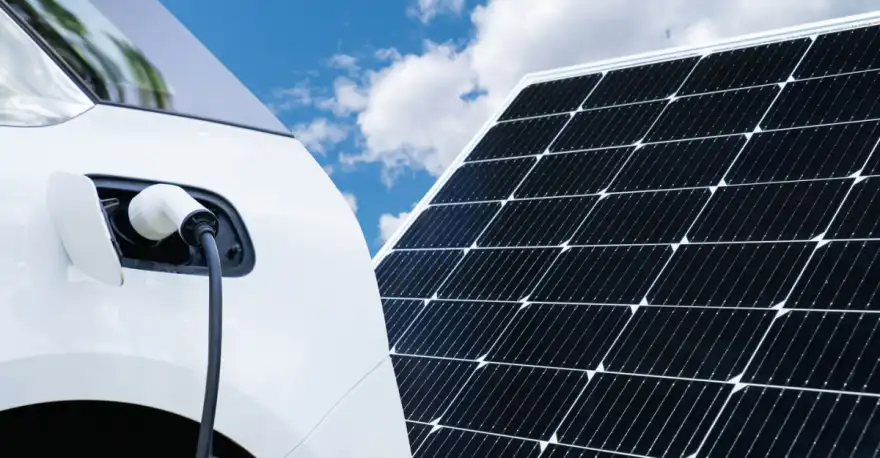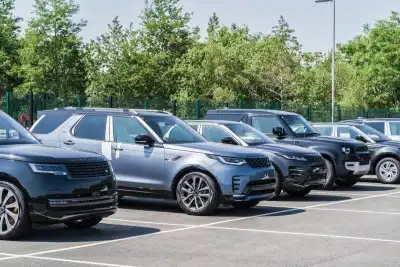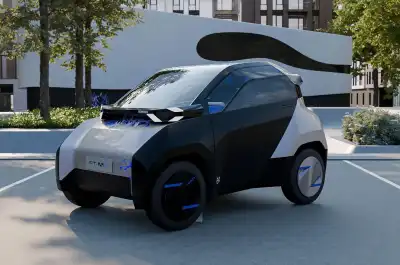
Charging an electric vehicle (EV) can be pricey, and home chargers aren't cheap either.
So, why not charge while driving by adding solar panels to electric cars?
In this article, we'll explore whether cars with solar panels already exist, how well they work, and which manufacturers are leading the charge. We'll also dive into the costs and the future prospects of solar-powered cars.
Are there cars with solar panels?
Yes, some cars come with solar panels. A few manufacturers, including Hyundai, Mercedes-Benz, and Toyota, have produced or tested models with integrated solar panels.
These cars might feature a solar roof, panels extending from the back to the bonnet, or even panels on the sides.
At best, the panels can add a few extra miles of range. At the very least, they power the car's lights, heating, or air conditioning.
Would cars with solar panels actually work?
While solar panels on cars could work, they likely wouldn't fully charge the vehicle.
This is because cars are too small to host enough solar panels to power them continuously.
Charging an EV typically requires eight to twelve solar panels over several hours. Most cars can only fit one to three panels.
Sunlight availability is another issue. Not everyone lives in a sunny area, and while solar panels do work on cloudy days, they generate more electricity in direct sunlight.
For substantial extra range, solar panel efficiency would need to exceed the current average of 20% to produce more electricity per square meter.
Which car manufacturers currently use solar panels?
Several major car manufacturers have made cars with solar roofs, including Toyota, Hyundai, and Mercedes-Benz.
However, these cars aren't widely available for purchase, and their availability varies by region.
Widespread availability is limited due to the modest benefits of solar panels, which add cost to already expensive cars while providing only a small increase in range.
Toyota
Toyota's 2023 Prius Prime offers an optional solar roof.
The solar roof costs around £500 extra, recharges the car battery when parked, and powers the air conditioning and other electrical accessories while driving.
Hyundai
Hyundai's 2022 IONIQ 5 includes select models with a solar roof.
Hyundai claims the panels can add up to 1,240 miles of range per year in sunny conditions.
The 2019 Sonata Hybrid also features a solar roof, extending the car's range by about 800 miles annually.
Mercedes-Benz
Mercedes-Benz developed the VISION EQXX prototype with a solar roof, but there's no production plan for this model. It demonstrated an extra 15 miles of range from the solar panels during tests.
The Pros and Cons of Cars with Solar Panels
Pros:
1. Extra Miles for Free: Solar panels can add a few extra miles of range to your EV without any additional cost.
2. Power for Internal Systems: They can power electrical systems inside the car, such as lights and air conditioning, for free.
3. Eco-Friendly: Solar panels make EVs even greener by using renewable energy
Solar panels provide a boost of free electricity, extending the car's range by a few miles. They can also power internal systems like lights and air conditioning, making the car more eco-friendly. Unlike electricity from home or public chargers, which may not be from renewable sources, solar energy is completely green.
Cons:
1. Limited Power: Cars can't fit enough panels to fully charge the battery.
2. Added Expense: Solar panels increase the cost of an already expensive car.
3. Weather Dependent: The electricity boost from solar panels varies with weather conditions.
The limited surface area of cars restricts the number of panels they can support, meaning they can't generate enough electricity to fully power the car. Adding solar panels also increases the car's cost, and some people don't find the expense justifiable, especially given the variability in electricity generation due to weather.
What's the Future of Cars with Solar Panels?
The future might see more cars equipped with solar panels. According to the Netherlands Organisation for Applied Scientific Research (TNO), EVs with solar panels could make up 10% of the global market by 2030, though this is an optimistic estimate.
However, the journey isn't smooth. In 2022, German startup SONO Motors failed to secure the funds needed to launch its solar car project. Conversely, Dutch startup Lightyear, founded in 2016, is making strides to bring its solar car to market.
The investment from major companies like Hyundai and Toyota in developing more models with solar roofs indicates a sustained interest. While cars with solar panels may never fully charge through solar energy alone, innovations in other transport modes are promising. For instance, a Chinese company has introduced solar scooters that can be fully charged with their integrated panels.




